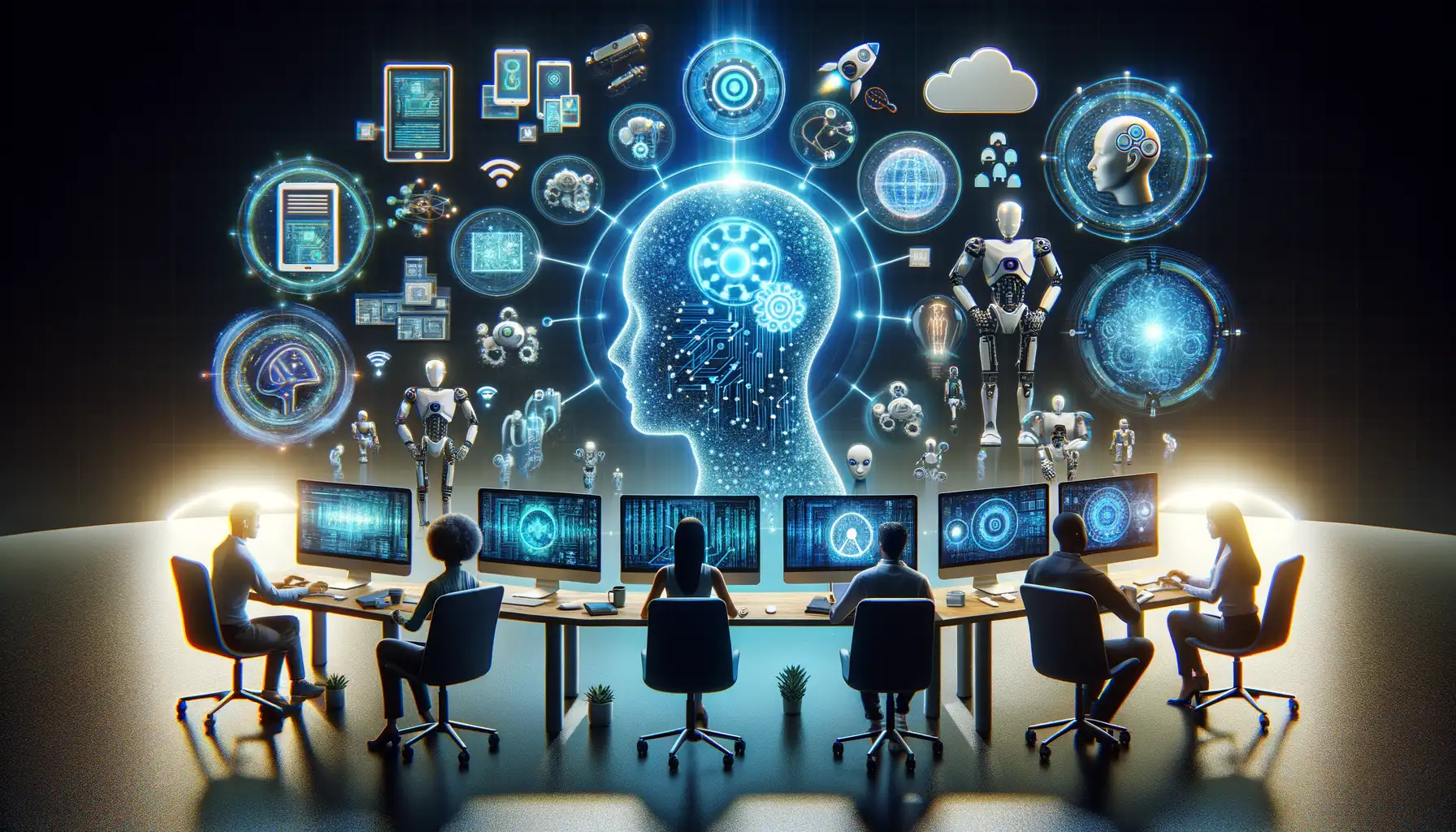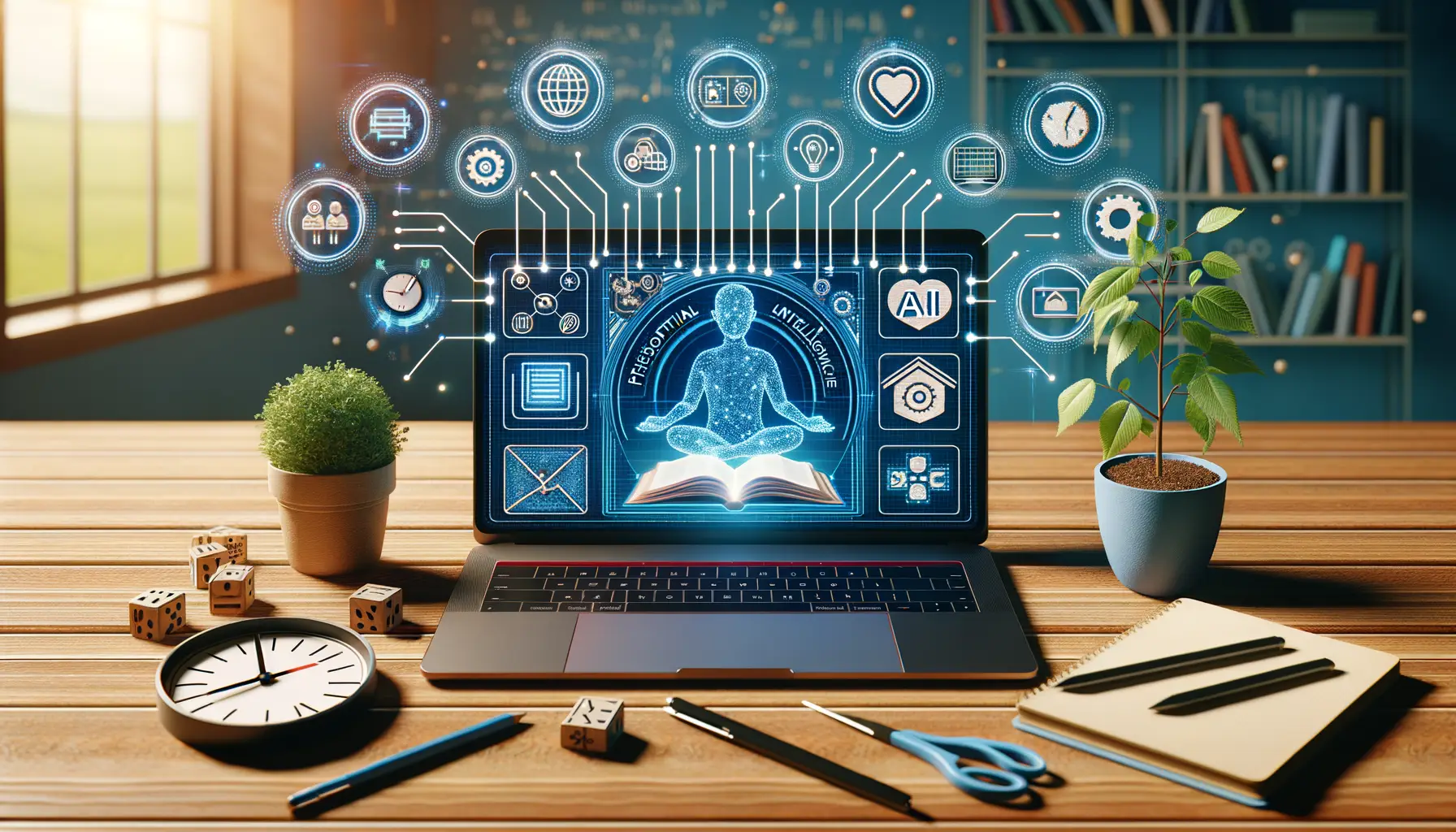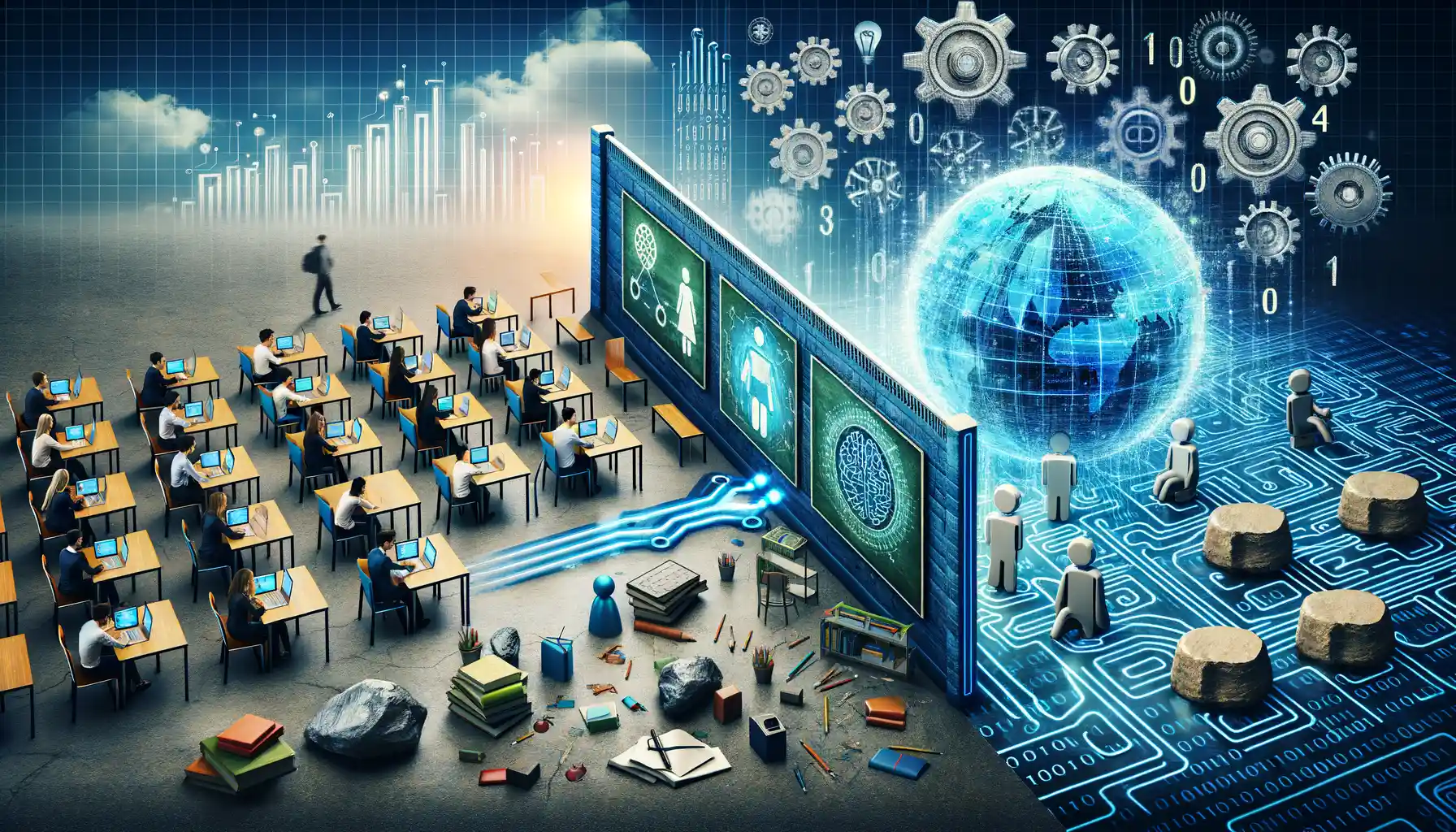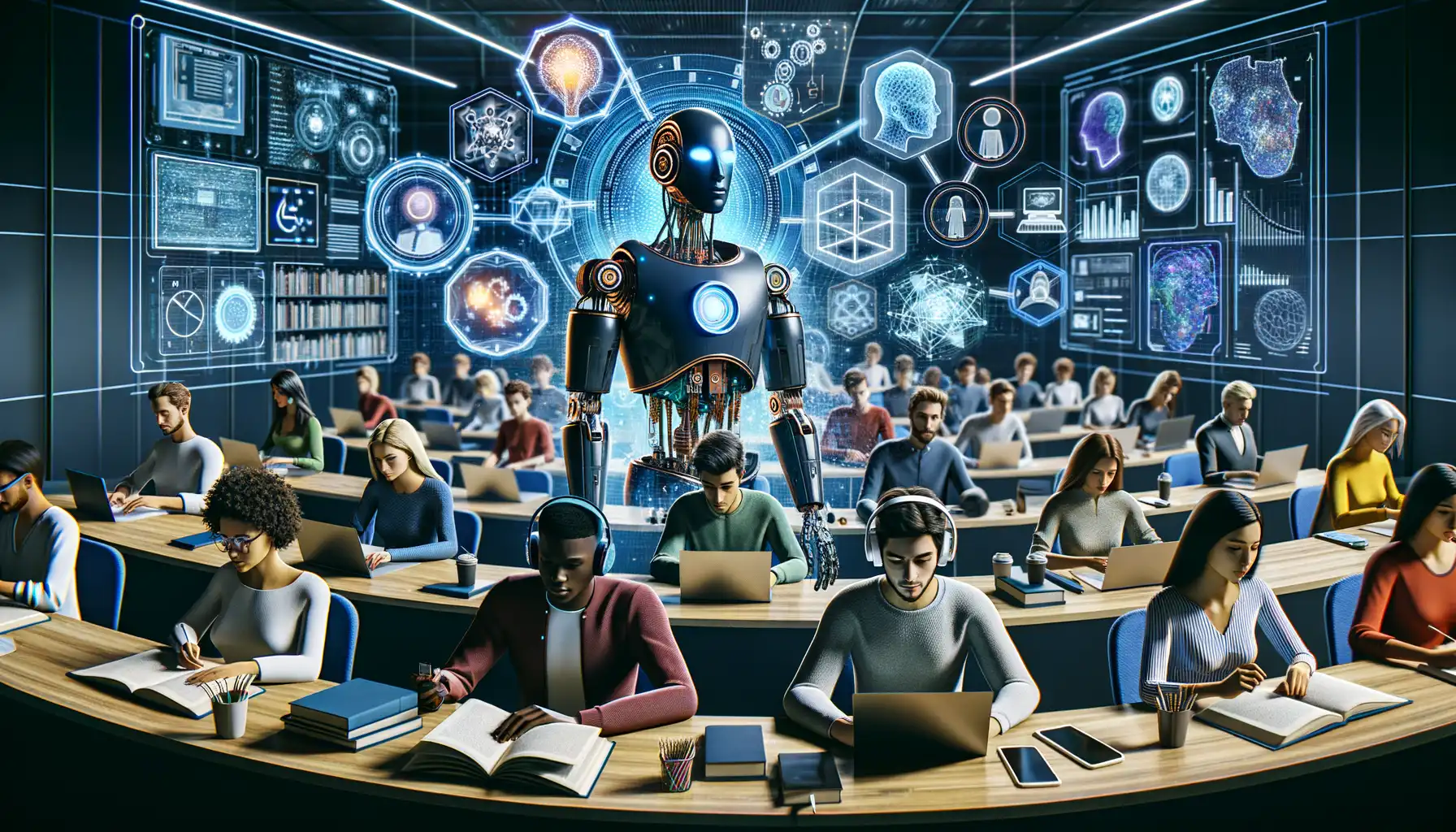The Impact of Artificial Intelligence on Modern E-Learning
How AI Becomes Your Personal Learning Sidekick
Picture this: you’re diving into a new course, and instead of wading through generic content, it feels like the material was built just for you. That’s the magic of Artificial Intelligence (AI) in modern e-learning. With its ability to analyze your progress, understand your preferences, and predict your learning speed, AI becomes less of a tool and more of your very own personalized tutor—minus the apple-for-the-teacher trope!
Take, for example, adaptive learning systems powered by AI. These platforms don’t just show you what you already know; they pinpoint areas where you struggle and deliver content that fills those gaps. Imagine tackling math and instead of another dull equation, the system gives you a fun, gamified challenge aligned with your skill level.
- Real-time feedback: No more waiting for teachers to grade your work—the AI analyzes your input instantly.
- Learning suggestions: Stuck on a concept? AI suggests videos, articles, or exercises tailored to your needs.
- 24/7 accessibility: Whether you study at midnight or dawn, AI is always ready to support you.
This isn’t just teaching—it’s learning reimagined. E-learning feels less like a slog and more like an adventure fuelled by technology’s best-kept secrets.
Key AI Technologies Revolutionizing E-Learning

The Cutting-Edge Tools Powering Smarter E-Learning
Imagine opening your favorite e-learning platform and feeling like it “gets” you. That’s not magic—it’s the work of technologies like Natural Language Processing (NLP) and Machine Learning, quietly tailoring your learning journey behind the scenes. Ever wondered how platforms recommend the perfect video lesson or quiz? It’s because of AI that learns your preferences and predicts your needs like a personal tutor who never gets tired.
Now, let’s talk about AI-powered chatbots. These are no longer clunky automatons that spit out generic lines. Today’s chatbots feel like conversational partners. Need to clarify a tough concept at 2 a.m.? They’ve got you covered with detailed explanations, links, and even follow-up questions to make sure you really “get it.”
- Computer Vision: Think real-time feedback on handwritten assignments or progress tracking from webcam-based assessments.
- Adaptive Learning Algorithms: These ensure no more one-size-fits-all content—your lessons evolve as you do.
It’s jaw-dropping when you realize these technologies aren’t just transforming how we learn—they’re designing experiences that feel crafted just for *you*.
Benefits of AI Integration in Online Learning Platforms

Personalized Learning: AI as Your E-Learning Sidekick
Imagine having a personal tutor who knows exactly what you need, when you need it—sounds dreamy, right? That’s what integrating AI into online learning platforms feels like. It tailors the entire experience to match every learner’s unique rhythm and style. Struggling with algebra? AI identifies your weak spots and delivers bite-sized lessons or extra practice exercises right when frustration starts creeping in. Flying through a particular course? It fast-tracks you to advanced concepts so boredom doesn’t stand a chance.
Here’s the kicker: AI doesn’t just stop at academics. It can analyze behavioral patterns to predict when you’re zoning out and might even suggest breaks. Think of it as your friendly nudge that keeps motivation alive.
- Real-time feedback: Instant suggestions on assignments and assessments help learners correct mistakes without long waits.
- Adaptive content: Course materials change dynamically, fitting the learner like a glove instead of a one-size-fits-all approach.
Efficiency for Educators: Work Smarter, Not Harder
With AI onboard, instructors get superpowers. Picture an assistant that grades quizzes at lightning speed, flags struggling students, and even crafts personalized lesson plans. This isn’t just efficiency—it’s liberation from tedious tasks, leaving more time for creativity and human connection in teaching. And for larger institutions? Managing thousands of learners suddenly becomes less like herding cats and more like conducting a symphony.
Challenges and Limitations of Implementing AI in E-Learning

When AI Meets E-Learning: Not Always a Perfect Match
Integrating AI into e-learning might seem like adding magic to education, but let’s unravel the not-so-glamorous side of this story. First off, implementing AI demands substantial resources – think time, money, and endless expertise. It’s not just about downloading some fancy software; it’s a dance of trial and error, fine-tuning algorithms, and aligning tech with human needs. For smaller platforms or schools with limited budgets? It can feel like climbing Everest without oxygen.
Then there’s the elephant in the room: data privacy. With AI crunching through massive learner data to personalize experiences, safeguarding sensitive information becomes a full-time job. A single breach could shatter trust—and that’s no small issue in an era of growing cyber threats.
- Bias in AI models: Ever considered how AI might unknowingly reflect the biases of its creators? This can lead to unfair assessments or recommendations, leaving some students out in the cold.
- Lack of human touch: While AI tutors are brilliant at repetition and logic, they can’t replicate the warmth of a real teacher’s encouragement.
The truth? The road to mastering AI in e-learning is paved with challenges that require a thoughtful, human-centered approach.
Future Trends in AI and E-Learning Development

Breaking Barriers with Personalization and Adaptive Learning
The future of AI in e-learning feels like stepping into a world where courses *magically* adapt to your needs—because they do. Imagine enrolling in an online coding class, and the platform instantly understands you’re a pro at JavaScript but struggling with Python loops. It dynamically adjusts, serving bite-sized Python tutorials instead of wasting your time on things you’ve already mastered. This is what adaptive learning powered by AI promises: making cookie-cutter education a thing of the past.
But this isn’t just about algorithms crunching numbers—it’s about creating a more human connection. Sophisticated AI will harness emotional intelligence to detect frustration or boredom through your facial expressions or typing patterns. How? Tools like Natural Language Processing (NLP) and affective computing will analyze subtle cues, offering pep talks when you’re stuck and even lightening the mood with humor during a tough module.
- Bespoke lesson plans generated in seconds
- AIs acting as engaging mentors rather than passive tools
With these advancements, online learning might finally feel less like a screen and more like having a personal tutor who “gets” you.
Immersive Technologies Shaping the Future
Picture this: logging into your virtual classroom and being greeted by AI-powered avatars that look and behave astonishingly human. These avatars role-play scenarios with such realism, it’s like transporting into another reality. Meanwhile, VR and AR technologies are joining forces with AI to create unforgettable learning experiences. Want to learn history? You won’t just read about ancient Rome—you’ll explore its bustling markets or discuss politics with a Caesar look-alike.
And let’s talk about collaboration. AI-driven group simulations are rewriting how teamwork skills are taught. Whether you’re an aspiring entrepreneur or a med student, solutions like these promise hands-on practice in lifelike situations.
The future isn’t arriving; it’s already sneaking into platforms today. Can you hear the whisper of change? It’s smarter, bolder, and oh-so transformative.
